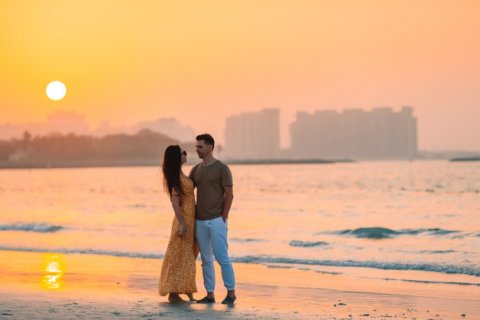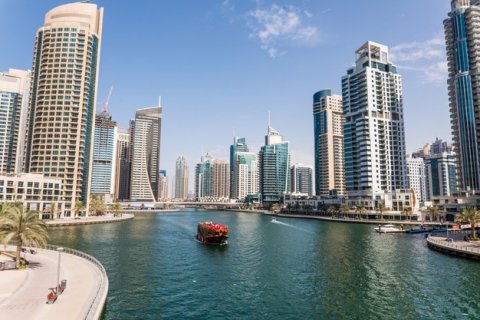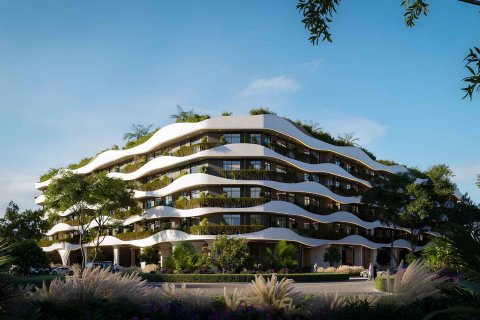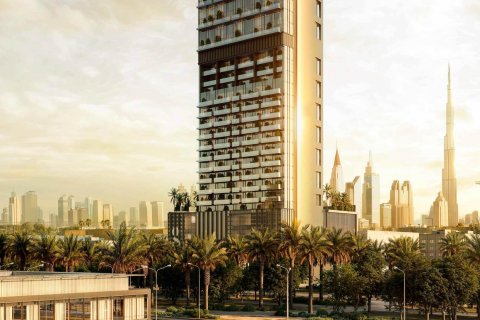
The UAE is actively developing "green construction". New real estate units in Dubai and other emirates are being developed according to strict environmental standards. The country is aiming to achieve zero carbon emissions by 2050. According to various data, on average worldwide, about 39% of emissions emanate from buildings and the construction sector. In the UAE, this figure is even higher. Hence the focus of the country's government is on re-tooling the industry and building zero-carbon facilities.
Content:
- Sustainable Development in the Emirates
- Nature Conservation Laws in the UAE
- How the Environmental Impact is Assessed
- “Green” Policy
- New Developments in Dubai and СО Emission Rates
- We’ll Assist you in Choosing a Property in the UAE
Sustainable Development in the Emirates
The current condition of sustainability in Abu Dhabi is assessed by the Estidama (Estidama Pearl Rating System) and the Dubai Green Building Regulations in Dubai. In Ras Al Khaimah, this industry is regulated by the Barjeel Green Building Regulations.
The 2020 figures released by the UAE Green Building Market Survey showed that the total green construction area in Abu Dhabi was 35,400,000 square meters. In Dubai, 26,900,000 square meters of total developed area complied with the Rules and Specifications, and in Ras Al Khaimah 239,200,000 square meters had Barjeel permits.
1,242 new properties and 6,658 villas were built in Dubai within the framework of the 2013 modernization program, which is one of the most important elements of the sustainable development program. 18 properties in Sharjah and 16 villas in Ras Al Khaimah were built under the same program.
As of April 2020, 386 LEED (Leadership for Energy Efficient and Environmental Design) projects have been completed in the UAE. Their total area was 5,900,000 square meters. Other areas of 4,000 square meters in the UAE have a confirmed certification of the WELL international building certification system.
Renewable energy and nuclear energy projects in the UAE are also under development. For 2022, projects of more than 37 GW of nuclear energy are being actively developed in the region. The cost of these projects is estimated at $165,000,000,000.

Nature Conservation Laws in the UAE
Air
Currently in effect in the UAE is the Federal Law No. 24 of 1999 on the Protection and Development of the Environment (Environmental Law). This law protects against air pollution. It sets limits on emissions, gases, air pollutants, flue gases, and smoke. It also regulates waste incineration and the use of pesticides. Among other protective measures, the Environmental Protection Act regulates drilling and construction and requires that necessary precautions are taken when storing and transporting construction waste and dust.
In 2021, the UAE Ministry of Climate Change and Environment launched the National Air Quality Strategy (2021-2031) to accelerate the transition to a green economy. This initiative aims to bring innovative and cleaner technologies to the construction industry.
Water
The Law on Environmental Protection criminalizes disposal into the aquatic environment of any substance that:
- adversely affects living or non-living resources;
- endangers human health;
- hinders water sports and tourism;
- degrades the quality of the water.
Waste
The Law on Environmental Protection regulates the handling of waste and establishes protective measures for hazardous substances and waste handling. All facilities developed to manage such waste must be licensed. The import of hazardous waste is strictly regulated.

How the Environmental Impact is Assessed
According to the Law on Environmental Protection, all projects and institutions must, before starting the proposed activity, conduct a study and analysis of the following parameters:
- environmental feasibility of activities;
- practices that may affect environmental safety.
“Green” Policy
Both Abu Dhabi and Dubai have introduced various green rules aimed at maintaining a healthy environment and human health.
Abu Dhabi Department of Municipal Affairs introduced the Abu Dhabi Building Code. It is a set of construction standards aimed at, among other things, safety, fire protection, and energy saving. These codes apply to all projects in the emirate.
Dubai has also recently introduced its own set of rules. The Green Building Rules and Specifications set out specific green construction requirements that apply to all developments in Dubai. These rules are in place to optimize the consumption of energy and water in the emirate.
New Developments in Dubai and СО Emission Rates
Today, the UAE is responsible for one of the largest carbon emissions in the world. While the country currently is under no legal obligation to reduce its environmental footprint, the emirates actively participate in the United Nations convention conferences on climate change and also set their own sustainable development goals to reduce their annual emissions. For example, when constructing new properties in Dubai, developers strive to achieve reduced CO2 emissions targets.
In recent years, it is the area of sustainable construction in the UAE that has received the most development.

We’ll Assist you in Choosing a Property in the UAE
Assistance with purchasing an apartment in Dubai, property choosing, as well as comprehensive information support, and support during the process of buying and selling are waiting for you on the Emiartes.Estate website! Please feel free to contact our experts to find the best investment property in the Emirates.











































